28 MAY 2018
Confined indoors for 7 days, banned from using salt in food and made to miss school classes, girls speak out about the stigmas and difficulties they faced when they got their first period.
Chandarayani from Indonesia: “I am not allowed to take a bath, rinse my hair or cook”
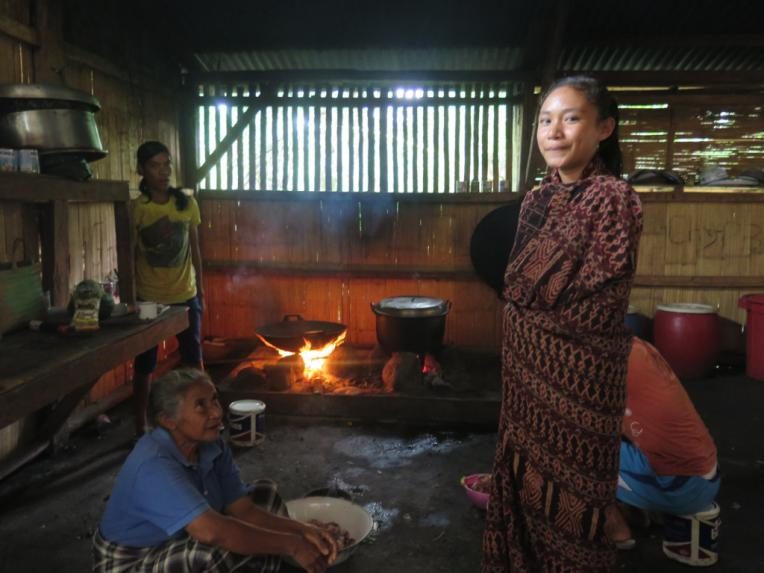
“The first time I got my period, I told my father,” says 11 year old Chandarayani, who lives in a small village in Indonesia. “It felt very strange as I wasn’t expecting to see spots of blood on my underwear. I didn’t know how to handle it.”
Chandarayani’s father quickly told her mother. Chandaryani’s mother reassured her it was a normal process and showed her how to put on a sanitary pad.
“In my family there is no tradition nor rituals applied when a girl has the first period. But there are things that my mother asks me not to do during menstruation,” says Chandarayani. “I am not allowed to take a bath, rinse my hair or cook.”
Luckily, Chandarayani is able to go to school when she has her period. “I don’t have to take sanitary pads to school with me as Plan International Indonesia has equipped our school toilet with clean water, boxes for sanitary pads and tissues. During menstruation my school days can run normally now. Nothing bothers me.”
Alinafe from Malawi: “I was confined to the house for 7 days”
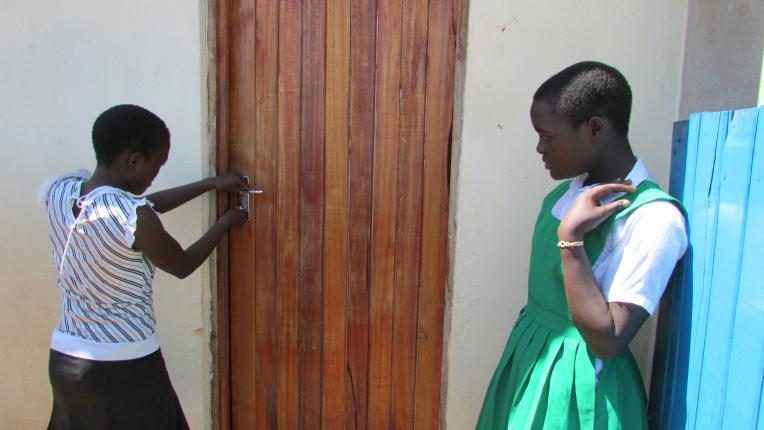
“I was 13 when I got my period. I thought I’d hurt myself,” recalls Alinafe (pictured above left), now 15, from Malawi.
The teenager rushed to tell her friend, but they were both alarmed when the blood flow didn’t stop.
When Alinafe’s mother found out, the young girl was sent to her neighbour’s house, where she was given some rags. Alinafe then went to stay with her grandmother, in another community.
“I was told to stay inside my grandmother’s house for a week and taught how to wear rags, so I didn’t stain my clothes with blood and bring shame on my family,” says Alinafe.
During the 7 days indoors, Alinafe was taught 2 dances, one that prepares her for sex after marriage; the other about how to respect her elders.
Cooking was an issue too. “I wasn’t allowed to cook food until my second period and I was told not to put any salt in people’s food,” says Alinafe.
The 7 day ceremony also resulted in missed school classes. “I missed some lessons but I have now graduated into adulthood. When I came out of confinement, we held a ceremony.” she says.
Janaki from Nepal: “My period made me ‘impure’”
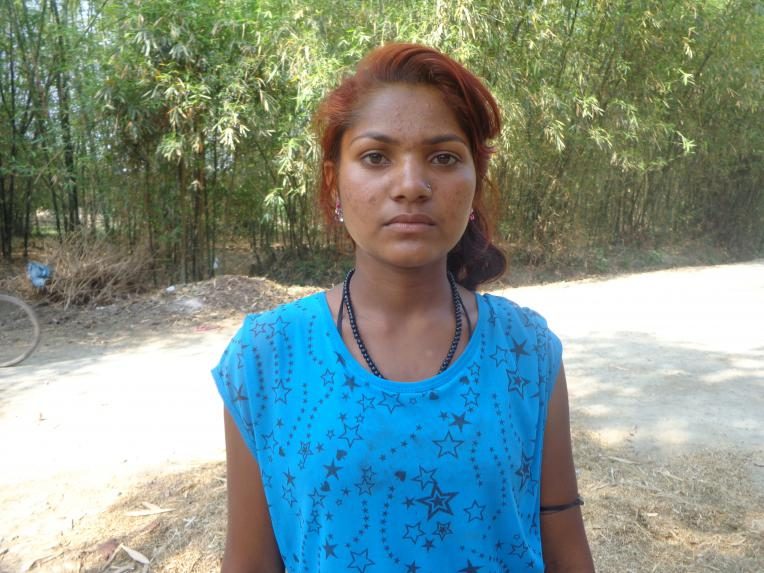
“When I had my first period, I felt so scared. I didn’t want to tell my family, so I went to my neighbour’s house,” says Janaki, 16, from Nepal.
“I didn’t take a bath for the first 3 days,” says Janaki. “Then, my friend’s mother tore a piece from an old saree for me to use as a sanitary pad.”
Even though she would clean the piece of cloth she used, she feared being exposed and would leave it to dry inside the room.
After 3 days, her mother found out about her period. “You have become impure,” announced Janaki’s mother.
Janaki didn’t know what menstruation meant, why or how it was happening. “All girls face the same problems,” said her mother.
Recently, Janaki has had the opportunity to learn more about why girls menstruate and how to manage it. Through the training sessions, organised by Plan International Nepal’s partner organisation she has learnt that there is no need to be shy about menstruation.
“It is a natural process for all women. If we do not have periods, we cannot be mothers,” she says.
Janaki is now working with other teenagers, sharing her knowledge on the topic.
Marie from Burundi: “No one told me what to wear or how to cope”
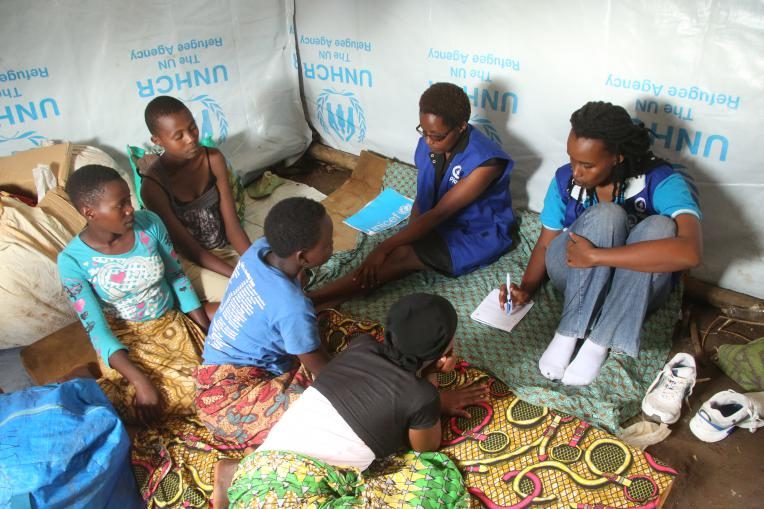
“No more jokes with boys, you are a grown up now,” said Marie’s mother, upon hearing her daughter had got her first period.
Marie, 15, has just fled from Burundi to Rwanda to escape political turmoil. She says “When I got my period, I was offered no explanation. No one told me what to wear or how to cope with the bleeding.”
Unfortunately, menstruation is still surrounded by many taboos and myths in Burundi. It’s a topic only discussed behind closed doors.
Plan International Rwanda has been holding sessions in a centre, currently home to over 4,000 refugees, educating young girls on the issue of sexual exploitation, as well as providing a safe space to discuss the myths surrounding menstruation.
One young girl said she is afraid to tell her mother about menstruation, in case she “laughs” at her. Others say taking a bath near to any kind of utensil at home is prohibited, as drops of blood could kill family members.
Many girls also confided that they are told to stay away from men during menstruation, otherwise it will be seen in their face. Another girl said she was told to place blood on her breasts to stop them from falling.
As for Marie, she says “When you start your period, you become more beautiful. You get softer skin and you gain weight.”
Menstruation has been difficult to deal with for women and girls in the camp. According to Euphrasie, 46, from Burundi. “Most of us came in the clothes we are wearing. Crossing borders to flee a country is prohibited, so if we came with more clothes it would have raised suspicions. That’s why many of us only have one pair of knickers and no sanitary pads.”
Plan International Rwanda is currently distributing sanitary pads and underwear to refugees to help them manage their menstruation.
Christine from Uganda: “My mother refused to buy me any sanitary pads”
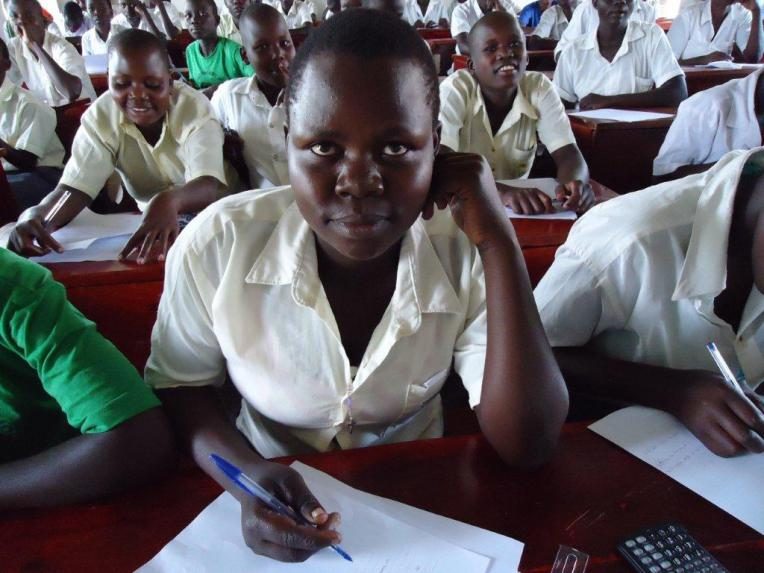
“My first period came when I was 12, a day after my sister started hers,” says Christine, 17, from Uganda. “When I saw blood on my knickers, I rushed to ask my sister where it was coming from. She said I had started menstruating, but I didn’t understand what she meant.”
Christine was told to have a bath and tell her mother about what had happened. “My mother bought me 2 pairs of knickers,” says Christine. “When I asked her about the pads, she told me she uses rags and I should use the same. I got a cloth we were no longer using, tore it into pieces, washed it and dried it properly. That’s how I managed my first period and for the long time to follow.”
Christine asked her friends about managing their periods. “Some told me they use rags, others said they use disposable pads, but my mother still refused to buy me sanitary pads. Fearing I would stain my school dress, I asked my big sister for help.”
Unaware, her period was set to last for longer than a day, Christine was shocked when the bleeding continued.
“It took a full week, 7 school days. I was forced to go back to my mother and ask for pads again as I got bruises every time I used cotton cloth or rags. She still refused. That’s when I started doing manual labour, digging for people, to earn money for pads. When I failed to earn enough, I started using rags again.”
Christine now has access to sanitary pads through the Plan International Uganda supported AfriPads scheme.
Plan International is working globally to ensure girls can manage menstruation without shame. Why? Because menstruation matters. Period.


